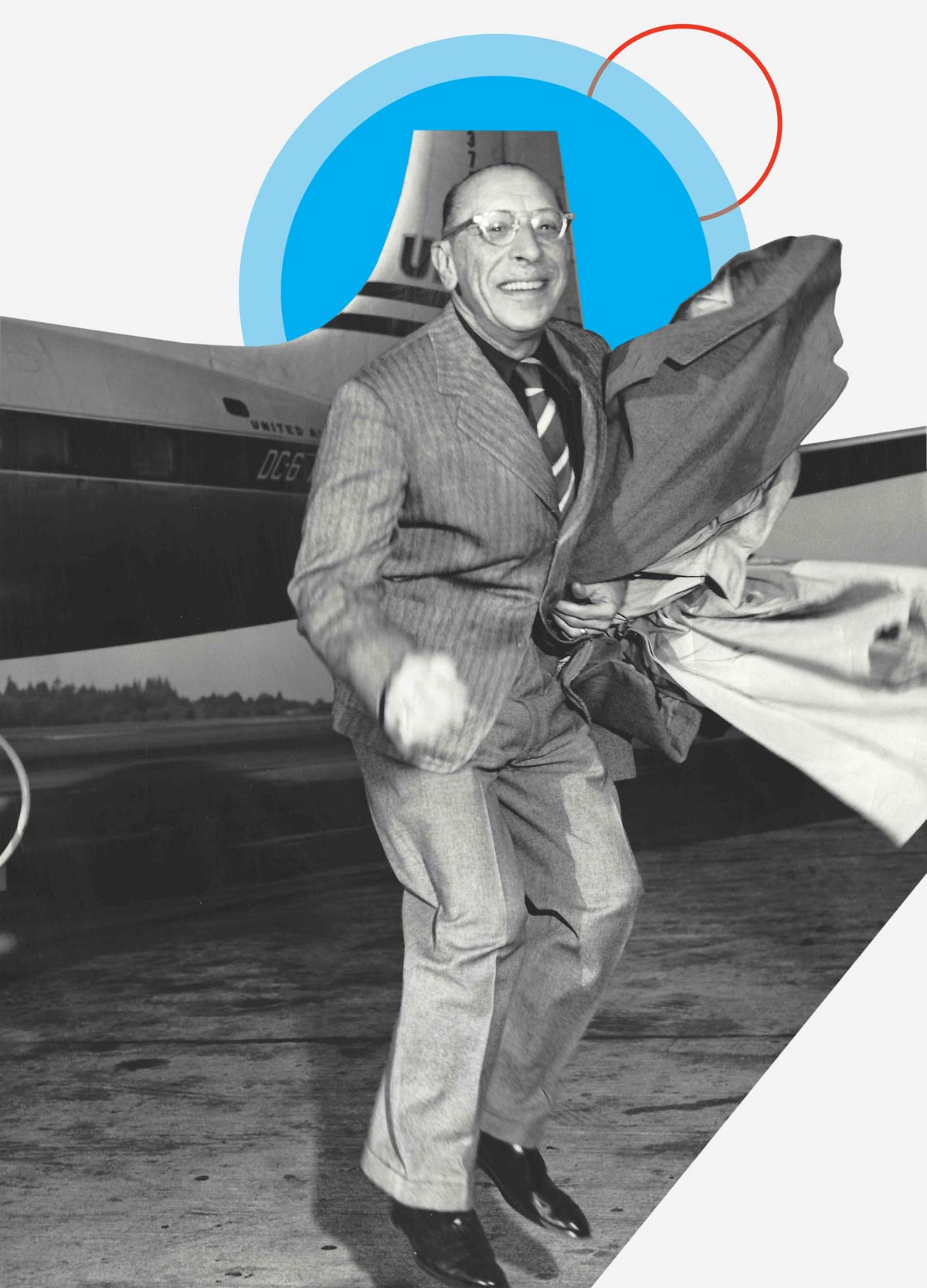A Nation of Immigrants
Essay by Matthew MugmonAn early example was Sergei Rachmaninoff, who arrived in the United States in the late 1910s amid the turmoil of the Russian Revolution, and it was in the summer of 1940, while on Long Island, that Rachmaninoff composed his three-movement Symphonic Dances, his final significant work. Another signature mid-century orchestral work composed on American soil was Hungarian composer Béla Bartók’s thrilling five-movement Concerto for Orchestra; Bartók crossed the Atlantic in 1942, becoming a US citizen before he died in 1945. The same year, Igor Stravinsky became a US citizen; two years later, in 1947, Stravinsky, while in Chicago, saw 18th-century British artist William Hogarth’s series of paintings called The Rake’s Progress, which led to his Mozart-inspired opera of that name—a landmark of both 20th-century dramatic music and of Stravinsky’s Neo-Classical period.
World War II formed the backdrop for several composers’ departures from Europe, including Bartók’s. Ursula Mamlok, who died in 2016 in Berlin at age 93, was a teenager when she arrived in New York in 1941 to study at the Mannes School of Music, having previously fled with her family to Ecuador; she became a US citizen in 1945 and went on to study, and then teach for several decades, at the Manhattan School of Music. Mamlok’s American works include her stirring oboe concerto, whose version for chamber orchestra she created in 2003. Similarly, Czech composer Bohuslav Martinu fled Paris during the Nazi invasion in 1940, ultimately arriving in New York in 1941; he composed all six of his symphonies, as well as several concertos, during his prolonged stay in the United States, returning to Europe in 1953. Benjamin Britten’s even briefer—but crucial—stay in the United States from 1939 to 1942, where he became friends with Aaron Copland and met Leonard Bernstein, resulted in the glistening song cycle Les Illuminations for solo voice and string orchestra.
Post-war arrivals made significant contributions to classical music in the United States, shaping a powerful Pan-American musical conversation. Argentine composer Alberto Ginastera stayed in the United States from 1945 to 1947, where he studied with Copland at Tanglewood, and again in the late 1960s. He also visited multiple other times, including for the world premiere of his career-defining String Quartet No. 2 which had its world premiere in Washington, D.C., with the Juilliard String Quartet in 1958. Osvaldo Golijov was born in Argentina to Jewish immigrants from Eastern Europe; after a stay in Israel, he moved to the United States in 1986, where he studied with George Crumb and Oliver Knussen. Golijov’s expansive, eclectic works, such as Ainadamar and La Pasión según San Marcos, serve as powerful reflections of Latin American culture. In the early 1980s, the highly decorated bandleader, saxophonist, and composer Paquito D’Rivera defected from Cuba and quickly found success in the jazz world on his arrival in New York. His staggering output as a musician includes recent compositions like Cape Cod Files for clarinet and piano, which incorporates the blues and musical styles from throughout the Americas.
Matthew Mugmon is Associate Professor of Musicology at the University of Arizona. He has served as the New York Philharmonic’s Leonard Bernstein Scholar-in-Residence, and his research appears in the Journal of Musicology, Music & Letters, the Journal of Musicological Research, and the essay collection Rethinking Mahler. His monograph Aaron Copland and the American Legacy of Gustav Mahler was published in 2019 by the University of Rochester Press.

